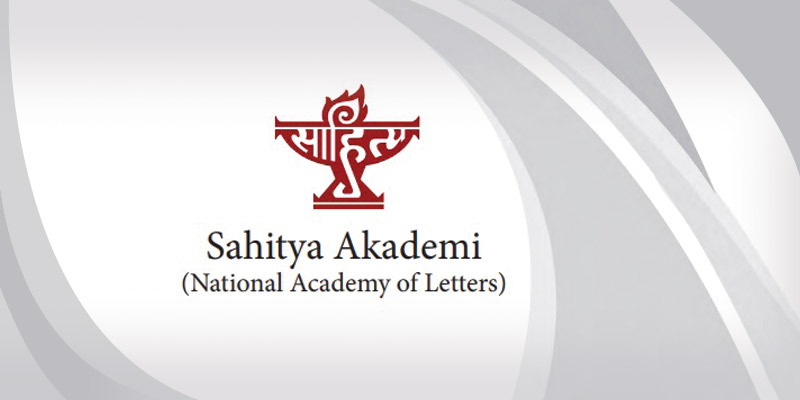- India
- Dec 21
24 writers chosen for Sahitya Akademi Award 2023
• English writer Neelum Saran Gaur and Hindi novelist Sanjeev are among the 24 recipients of Sahitya Akademi Awards 2023.
• The awards, recommended by jury members in 24 Indian languages, were approved by the executive board of the Sahitya Akademi that met on December 20 under the chairmanship of its president Madhav Kaushik.
• The list includes nine books of poetry, six novels, five short stories, three essays and one literary study.
• The awards are selected on the basis of unanimous selections made by the jurors or selection made on the basis of majority vote.
• The awards relate to books first published during the five years immediately preceding the year of award — between January 1, 2017 and December 31, 2021.
• The authors and poets will receive the award in the form of a casket containing an engraved copper-plaque, a shawl and an amount of Rs 1 lakh at a ceremony on March 12, 2024 at Kamani Auditorium.
Winners and titles:
• Assamese: Pranavjyoti Deka - Dr.Pranavjyoti Dekar Sreshta Galpa (Short Stories)
• Bengali: Swapnamay Chakrabarti - Jaler Upar Pani (Novel)
• Bodo: Nandeswar Daimari - Jiu-Safarni Dakhwn (Short Stories)
• Dogri: Vijay Verma - Daun Sadiyan Ek Seer (Poetry-Ghazal)
• English: Neelum Saran Gour - Requiem in Raga Janki (Novel)
• Gujarati: Vinod Joshi - Sairandhree (Poetry)
• Hindi: Sanjeev - Mujhe Pahachaano (Novel)
• Kannada: Lakshmisha Tolpadi - Mahabharatha Anusandhanada Bharathayatre (Essays)
• Kashmiri: Manshoor Banihali - Yeth Waweh Halay Tsong Kous Zalay (Poetry)
• Konkani: Prakash S. Parienkar - Varsai (Short Stories)
• Maithili: Basukinath Jha - Bodha Sanketan (Essays)
• Malayalam: E.V.Ramakrishnan - Malayala Novelinte Deshakalangal (Literary Study)
• Manipuri: Sorokkhaibam Gambhini, Yachangba Nang Hallo (Poetry)
• Marathi: Krushnat Khot - Ringan (Novel)
• Nepali: Judhabir Rana - Nepali Loksahitya Ra Loksanskritiko Parichaya (Essays)
• Odia: Ashutosh Parida - Aprastuta Mrutyu (Poetry)
• Punjabi: Swarnjit Savi - Mann Di Chip (Poetry)
• Rajasthani: Gaje Singh Rajpurohit - Palakati Preet (Poetry)
• Sanskrit: Arun Ranjan Mishra - Shunye Meghganam (Poetry)
• Santali: Taraceen Baskey (Turia Chand Baskey) - Jaba Baha (Short Stories)
• Sindhi: Vinod Asudani - Hathu Pakidijain (Poetry)
• Tamil: Rajasekaran (Devibharathi) - Neervazhi Paduvum (Novel)
• Telugu: T.Patanjali Sastry - Rameshwaram Kaakulu Marikonni Kathalu (Short Stories)
• Urdu: Sadiqua Nawab Saher - Rajdev Ki Amrai (Novel).
Sahitya Akademi
• Sahitya Akademi was established in March 1954 by the government of India.
• It is an autonomous body under the ministry of culture with the objectives to work for the development of Indian letters and to set high literary standards, foster and co-ordinate literary activities in all the Indian languages and promote through them the cultural unity of the country.
It aims to:
i) Promote good taste and healthy reading habits.
ii) Keep alive the intimate dialogue among the various linguistic and literary zones and groups through seminars, symposia, lectures, discussions and readings.
iii) Increase the pace of mutual translations through workshops and individual assignments.
iv) Develop a serious literary culture through publication of translations, journals, monographs, individual creative works of every genre, anthologies, encyclopedia, bibliographies, histories of literatures, dictionaries, etc.
• The Akademi has a special programme called Gramalok for the writers from remote village areas.
• The Akademi has recently introduced a new programme titled Dalit Chetna to give exposure especially to Dalit writers.
• Akademi gives 24 awards annually to literary works in the languages it has recognised and an equal number of awards to literary translations from and into the languages of India, both after a year-long process of scrutiny, discussion and selection.
• Sahitya Akademi bestows Bal Sahitya Puraskar on the best literary works in the field of children’s literature and Yuva Puraskar for young writers who have achieved excellence in creative writing and Bhasha Samman for significant contribution to classical and medieval literature and unrecognised languages.
• It also awards fellowships and honorary fellowships to eminent writers, Indian and non-Indian, and Dr. Ananda Coomaraswamy Fellowship and Premchand Fellowship to a person of eminence in the field of art, culture, literature and language studies, and to scholars doing research on Indian literature or to creative writers from the SAARC countries other than India.
Manorama Yearbook app is now available on Google Play Store and iOS App Store

